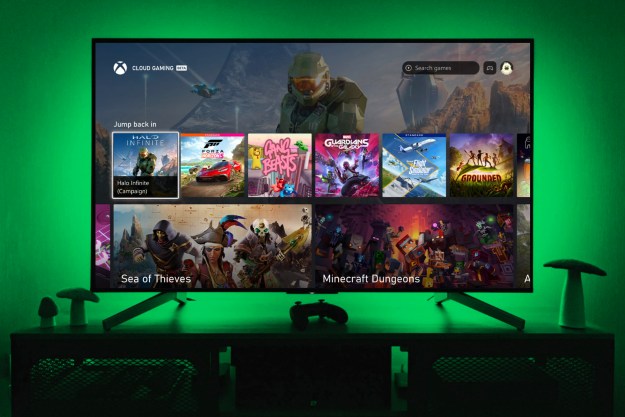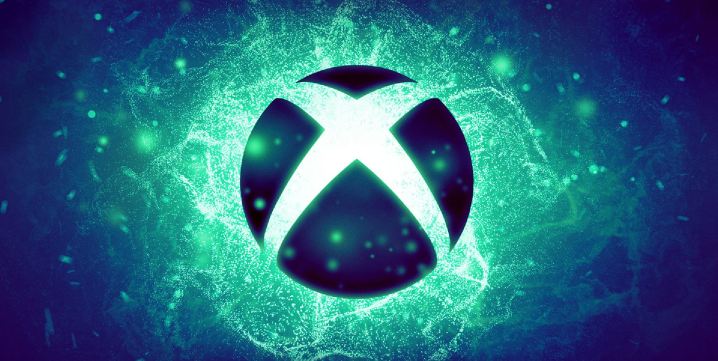
You’ve probably heard that the Federal Trade Commission (FTC) lost its case against Microsoft after an exciting and revelatory trial. On Tuesday, Judge Jacqueline Scott Corley denied FTC’s motion for a preliminary injunction to block Microsoft’s acquisition of Activision Blizzard before its potential completion by July 18. Ultimately, Corley did not believe that Microsoft owning Call of Duty would “substantially lessen competition” in the game industry. It was major win for Microsoft after months of regulatory hoops and roadblocks, but the FTC quickly moved to appeal the decision. This all raises an important question: What’s next?
Over the next week, Microsoft, Activision Blizzard, and the FTC will determine the fate of the gaming companies involved in this acquisition and set a precedent for the future of the game industry. On top of that, Microsoft still has to deal with the next moves made by the U.K.’s Competition and Markets Authority (CMA), which wants to block the acquisition due to its impact on cloud gaming. Following the release of Judge Corley’s Preliminary Injunction Opinion, I spoke to two analysts and a lawyer with knowledge of the video game industry to better understand what lies ahead for Microsoft and Activision, the FTC, and the CMA. The battle isn’t quite over yet, even if the end is finally on the horizon.
What’s next for Microsoft and Activision Blizzard
Currently, Microsoft and Activision are in a solid position, as a Judge has ruled that Microsoft is unlikely to pull Call of Duty from PlayStation or lessen competition in the game console, cloud gaming, or game subscription markets by acquiring Activision Blizzard. There’s a temporary restraining order in place until July 14, which the FTC hopes to successfully appeal during. As soon as that order is up, though, Microsoft and Activision Blizzard have until July 18 to complete the acquisition.
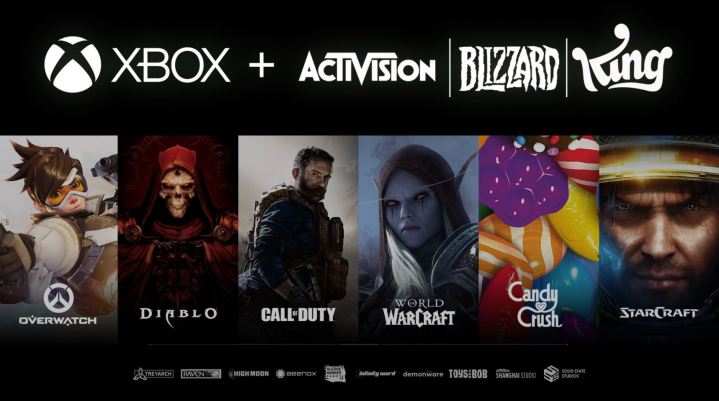
MIDiA Research Senior Games Analyst Karol Severin tells Digital Trends that this decision is “an important win that brings the acquisition significantly closer to completion” and that MIDiA sees no clear reason why U.S. courts would stop the deal before then. “It’s an expected continuation of a journey that is to reach its destination soon,” Severin continued. This was a sentiment shared by Sam Castree of Sam Castree Law. The lawyer tells Digital Trends that it’s “extremely likely that the merger goes through” and that he was “remarkably unimpressed with the FTC’s arguments.”
So yes, Severin and Castree believe Judge Corley’s decision makes the acquisition much more possible than it seemed before. And all indications from official comments by Microsoft President Brad Smith and Head of Xbox Phil Spencer made it clear that Microsoft and Activision will try to close their deal by July 18. Severin believes a successful acquisition will be positive for gamers and serve as a catalyst for discussion about the role of a traditional games publisher in the game industry and how much the game industry is consolidating.
“Microsoft’s next move will depend in part on what the FTC decides to do.”
Microsoft wants the deal to go through, and if it were solely up to it, the acquisition would happen by July 18. In reality, Castree believes that Microsoft’s next play will be in direct response to the FTC’s action, like the move to appeal the decision. “Maybe the FTC still takes the case to trial next month and probably loses,” he says. “But at this point, Microsoft is going to just proceed forward with finishing the deal like they had always planned to.”
What’s next for the FTC
The FTC came out as a clear loser from these hearings. Judge Corley denied their attempt at a preliminary injunction and pointed out flaws in the evidence the FTC tried to use to stop the deal. In its final findings of fact documents, the FTC greatly disagrees and are adamant about using appellate courts to prevent this acquisition from going through before July 18. Castree thinks that it’d be best for the FTC to drop the case at this point because of how bad it looks for them and how its attention should be elsewhere. Still, Castree explained why this appeal was something the FTC pursued.
“I think that the FTC’s most viable option — not great, but better than its other options –would be to appeal the denial of the injunction,” Castree tells Digital Trends. “Judge Corley was clear, ‘The Ninth Circuit Court of Appeals [i.e., the appellate court that oversees her district] has not addressed whether this burden-shifting framework applies in vertical merger cases.’ She didn’t have a clear directive from her own appellate court, so she looked to a similar opinion from the appellate court in Washington, D.C. However, the D.C. Circuit’s ruling is not binding in California. So, it’s possible that the 9th Circuit could take a different approach and ultimately decide that, no, actually, the burden that Judge Corley placed on the FTC was too heavy.”
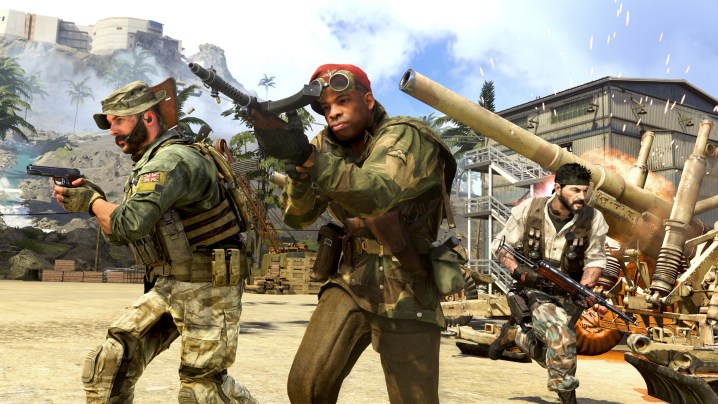
We now know that the FTC is filing an appeal on Judge Corley’s ruling. If successful, Castree explains that this appeal could force Corley to “try again under a different legal test” and “could cause enough of a delay to mess things up for Microsoft.” This could trigger a possible worst-case scenario for Microsoft. However, analysts like Severin don’t think the FTC has much ground to stand on and that the most likely outcome is that the acquisition attempt is eventually successful.
It doesn’t seem like the FTC is ready to give up and stop fighting just yet. We don’t quite know if the necessary sequence of events to prevent the acquisition from happening by July 18 will happen though. We’ll have to wait and see how the appeal plays out in the United States court system. Microsoft isn’t completely free of regulatory scrutiny, though, even if it comes out on top against the FTC. It still has the CMA to deal with.
What’s next for the CMA
In April, the CMA voiced its intent to block Microsoft’s Activision Blizzard acquisition because of the impact it could have on cloud gaming. Following Judge Corley’s decision, the CMA and Microsoft temporarily paused that litigation in the U.K. as they are “considering how the transaction might be modified in order to address those concerns in a way that’s acceptable to the CMA,” according to Brad Smith. That said, the CMA then told The Verge on Wednesday that it could potentially begin a new merger investigation if Microsoft and Activision try to restructure their deal in the U.K.
Although Castree admits that he’s not an expert in the U.K.’s anti-monopoly laws and that the CMA’s cloud gaming issues are different from the FTC’s Call of Duty focus, Castree points out the added pressure the CMA now faces as an outlier internationally. “It’s quite possible that the CMA will not want to look unreasonable as the odd man out, and that’s probably going to be in the backs of everyone’s minds as they are poised to enter into negotiations with Microsoft,” Castree tells Digital Trends.
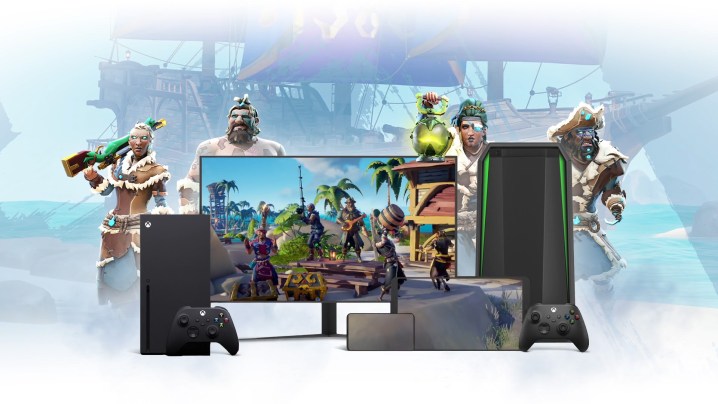
The U.K.-based analysts Digital Trends spoke to don’t think the CMA is as much of a threat to Microsoft now. “In the worst case, the acquisition can close without the U.K. market,” Severin admits. “In a more likely case, there will be some sort of renegotiation with CMA in the coming days, and/or Microsoft’s appeal hearing will take its course.”
Omdia Senior Principal Analyst George Jijiashvili mostly agrees, although he thinks it’s unlikely Microsoft will pull out of the market altogether. “Microsoft would probably also want to avoid having to offer a differentiated service in the U.K. due to the complexities involved,” Jijiashvili told Digital Trends. “I, therefore, think working out a deal with CMA is the most desirable outcome for Microsoft.”
What’s next?
In April, it looked like the Activision Blizzard acquisition might not happen after the CMA’s decision. Now, it seems more likely the CMA and Microsoft will want to reassess things together and come to a more amicable deal as the acquisition completes in the U.S.
Speaking to analysts and a lawyer about the outcome of these hearings, it seems likely that the deal could go through, although the FTC and CMA will continue to have objections to aspects of the acquisition. It’s possible for the purchase to not happen if some shocking new Microsoft-damning evidence emerges or the U.S. Appellate Courts reverse Judge Corley’s decision. Still, those are hypotheticals at this time.
So, what’s next? Microsoft is going to hope the FTC’s appeal is not successful — or timely enough to happen pre-merger — and will do all it can to get this Activision Blizzard acquisition done in North America before that July 18 date. The FTC and CMA are still presenting roadblocks that could negatively impact the deal, what happens over this next week will shape one of the most important moments in the history of Xbox.
Editors' Recommendations
- Microsoft wins FTC case, removing Xbox’s biggest Activision Blizzard acquisition hurdle
- Microsoft’s $69B Activision Blizzard deal temporarily blocked in U.S.
- Why cloud gaming is the linchpin in Microsoft’s troubled Activision Blizzard acqusition
- Microsoft pledges to bring Xbox PC games to Nvidia GeForce Now
- FTC files lawsuit to block Microsoft’s Activision Blizzard acquisition




